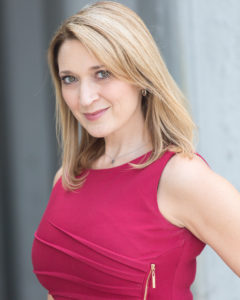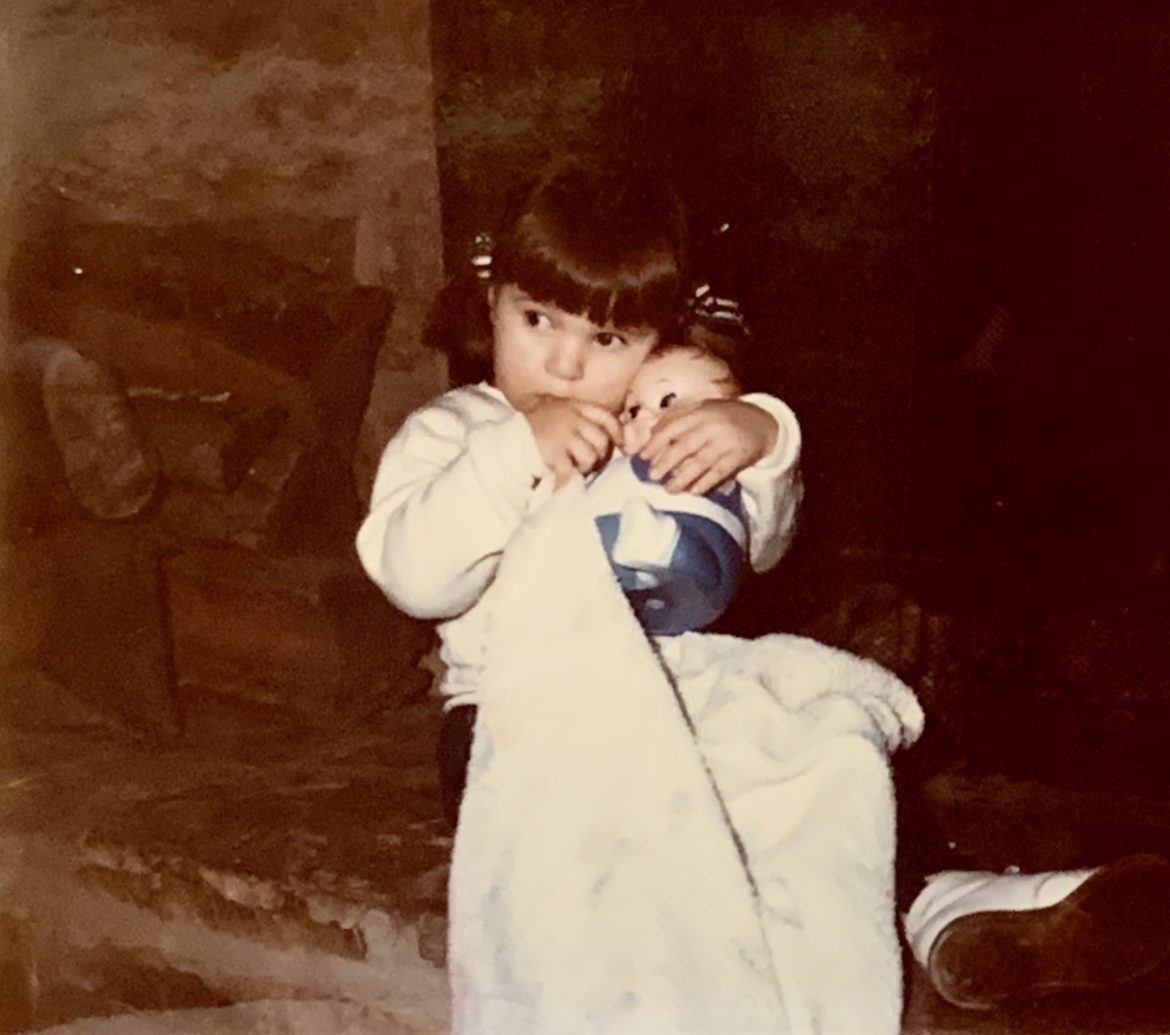The author has a message for her younger self. Her fractured adult self needs to hear it as well.
By Cory Goodrich
I look in the mirror now and I see the face I have always seen — same Disney princess eyes, same prominent nose. The hair color changes with my whim, but it’s still mine, straight, fine, and always out of control.
I look in the mirror, but now I also see someone else’s face staring back at me. His face. It unnerves me.
By the time I was born, my mother already had three children who looked strikingly like their father: blond and angular, small eyes, narrow nose. When I emerged, the doctor took one glance and said, “Well Ernie, you finally got one that looks like you!”
She repeated this over and over throughout my life: You look like your mother. She wanted that story etched deep in my brain so that when I questioned my dark hair, my unusual nose, or my short, curvy build so unlike my lanky siblings’, I would say, oh, that comes from Mama.
But it didn’t.
Those features came from my father. My real father. The man who was not the same father as the one my brothers and sister had. The truth was as plain as the nose on my face. Literally. My nose was the Garnett nose, not the Goodrich nose — and my mother knew it. In order to conceal that obvious truth, she built her own narrative so that when I questioned the differences I secretly suspected on a deep, unconscious level, she could repeat it as a mantra. You look like me, you look like me, you look like me.
I discovered the truth shortly after my fifty-first birthday. I was the result of an affair and everyone in my family knew that I was not really a Goodrich. Everyone but me.
And so now, when I stare at my face in the mirror, I see his features, not my mother’s, not even my own. I marvel that this newfound knowledge has the power to change my self-perception so entirely, even though I have been me for half a century. Why should learning that my father was not the man who raised me have the power to change how I see myself — to throw me into an identity crisis of epic proportions?
Damned if I know.
I look through my childhood photos, searching for clues, or maybe to try to find the person that I used to be, and I’m struck by how sad “little Cory” always appears. I think back to those formative years and I remember that ever-present sense of loss and sadness that I always felt but could never understand.
Children intuit things. They are so much more observant and aware than we give them credit for. There was a part of me that knew I was different from my siblings, but I didn’t understand why, and then I would feel guilty for even having those feelings. What was wrong with me that I couldn’t fit in? Why did I think of myself as an outsider? Why did I self-inflict so much of the blame for my parents’ eventual divorce?
Because I knew, deep down, that my very existence was the reason. Because children know.
I look at my childhood photos and I see the little girl that I was and I want to hug her. I want to comfort her and tell her, It’s not your fault.
I want to tell her that she feels different because she is different, but that doesn’t mean she doesn’t belong.
I want to tell her she is a gift, a miracle, a blessing that came from the love between two people — and just because those two people didn’t end up living happily ever after together doesn’t change that. She is their happily ever after.
I want to hold her and say, You are not the cause of your parents’ divorce. They have their own lives to live, their own choices to make. This is not on you.
I’d tell her she will grow up to be an empathetic warrior chick who writes and sings and paints and acts and has two little girls of her own that she protects fiercely. She will be a good mother. I’d tell her: You are going to be okay. You are loved.
And then I realize, all these things I would gladly say to my childhood self my fractured adult self needs to hear too. Can I look at my reflection — at my Franken-Cory mixture of DNA — and give her the same compassion? Can I say those same words to myself?
This will become my mantra. It’s not your fault. You’re going to be okay. You are loved.

— Cory Goodrich is an actress, singer-songwriter, painter, writer, autoharp player, and collector-of-weird-instruments who lives in the Chicagoland area. Check out her website, blog, and recordings at www.coryshouse.com and her paintings on Instagram@corygoodrich.
Severance is not monetized—no subscriptions, no ads, no donations—therefore, all content is generously shared by the writers. If you have the resources and would like to help support the work, you can tip the writer.
On Venmo: @Cory-Goodrich

